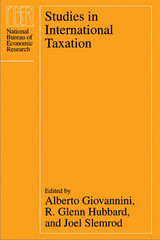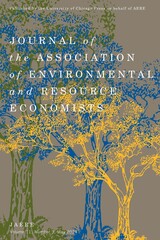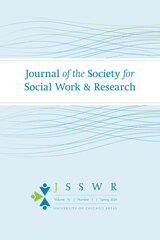
The new chairman of President Reagan's Council of Economic Advisers, Martin Feldstein is also the leading economist in the field of tax analysis. In this important volume he shows how systems of taxation influence the rate and nature of capital formation—a key policy issue in the development of any economy.
The first part of Capital Taxation deals with the overall rate of saving and examines the effects of taxes on both personal and corporate saving as well as on the interaction between the two. The second section describes the effects of tax rules on household portfolios: selection and size of investment and the process of portfolio adjustment. In Part 3, Feldstein turns to corporate investment in plant and equipment and in inventories. Part 4 analyzes the impact of capital taxation in a growing economy. Feldstein's perceptive identification of important economic and policy questions, adroit use of modeling and new data sources, and careful attention to dynamics make this book a powerful addition to the economic literature.

The contributors examine the effects of taxation on decisions about international financial management, business investment, and international income shifting. They consider the influence of tax rules on dividend policy decisions within multinationals; the extent to which tax incentives affect the level and location of research and development across countries; and the fact that foreign-controlled companies operating in the United States pay lower taxes than do domestically controlled companies.
The contributors to this volume are Rosanne Altshuler, Alan J. Auerbach, Neil Bruce, Timothy Goodspeed, Roger H. Gordon, Harry Grubert, Bronwyn H. Hall, David Harris, Kevin Hassett, James R. Hines Jr., Roy D. Hogg, Joosung Jun, Jeffrey K. Mackie-Mason, Jack M. Mintz, Randall Morck, John Mutti, T. Scott Newlon, James M. Poterba, Joel Slemrod, Deborah Swenson, G. Peter Wilson, and Bernard Yeung.

This important contribution to tax analysis presents seven related theoretical essays that examine the effects of capital income taxation on the behavior of firms. It is divided into three sections, focusing on optimal tax design, firm financial policy, and inflation. Taken together, the essays demonstrate the powerful role taxes play in shaping the behavior of American corporations, and also provide insights into the difficult task of tax reform.
Alan Auerbach’s results suggest policies the government might adopt to promote the optimal accumulation of capital. He examines the implications for capital taxation of discrepancies between nominal depreciation rates and real economic depreciation, and suggests appropriate rules of thumb for determining when capital taxation is neutral among alternative investment projects. He also makes important contributions to the debate over the integration of corporate and personal taxes on capital income and to the behavioral puzzle of why corporations pay dividends to their shareholders.
READERS
Browse our collection.
PUBLISHERS
See BiblioVault's publisher services.
STUDENT SERVICES
Files for college accessibility offices.
UChicago Accessibility Resources
home | accessibility | search | about | contact us
BiblioVault ® 2001 - 2024
The University of Chicago Press









